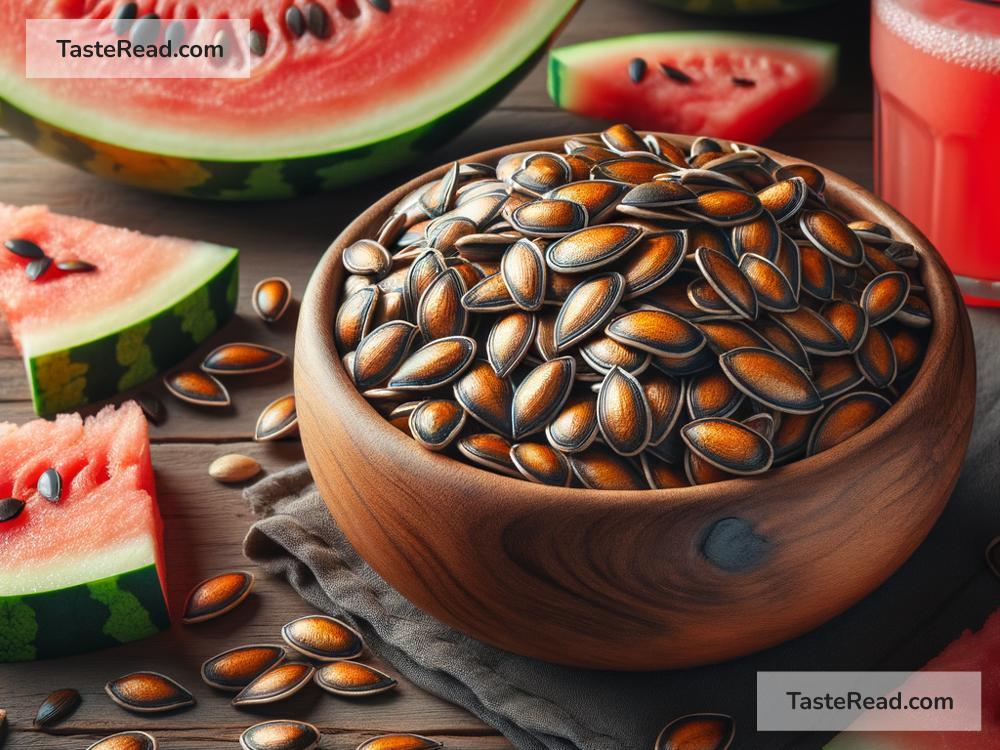Can Watermelon Seeds Be Eaten Safely? Here’s All You Need to Know!
Watermelon is one of the world’s favorite fruits. Juicy, sweet, and refreshing, it’s the perfect snack on a hot summer day. But as you enjoy the delicious red flesh, you may wonder about the little black or white seeds inside. Are these seeds safe to eat? Should you spit them out? Can they harm you in any way? Let’s break it down in simple terms and discover whether watermelon seeds are a safe and healthy choice.
The Short Answer: Yes, They’re Safe to Eat!
Watermelon seeds are perfectly safe to eat! If you accidentally swallow a few seeds while eating fresh watermelon, there’s no need to worry. They won’t harm your body. In fact, watermelon seeds are not just safe — they are packed with nutrients and have several health benefits when eaten properly.
In the past, you may have heard myths about swallowing seeds, like “a watermelon will grow inside your stomach” or “seeds cause indigestion.” These ideas are totally untrue. Let’s explore the truth about watermelon seeds!
Why Are Watermelon Seeds Safe?
-
They Are Natural and Edible: The seeds of a watermelon, like seeds from many other fruits, are a natural part of the plant. Humans have been eating watermelon seeds for centuries. There’s no toxic substance in the seeds, so they won’t cause any harm when consumed.
-
Stomach-Friendly: Your stomach can easily handle watermelon seeds. If swallowed whole, the seeds will pass through your digestive system without being broken down. If chewed, your body can benefit from the nutrients they contain.
-
No Plant Growing Inside You: One of the silliest myths about swallowing watermelon seeds is the idea that they can grow into a watermelon inside your belly. This simply can’t happen! Seeds only grow into plants when they’re planted and given water, soil, and sunlight — not in your stomach.
Are There Health Benefits to Eating Watermelon Seeds?
Yes, watermelon seeds are incredibly nutritious, especially if you eat them roasted, sprouted, or blended. These tiny seeds contain a surprising amount of vitamins, minerals, and healthy fats. Here’s a closer look at the benefits:
-
Rich in Nutrients: Watermelon seeds contain magnesium, iron, zinc, potassium, and phosphorus — all essential minerals for your body’s health. Magnesium supports your muscles and nerves, while iron helps carry oxygen through your blood.
-
Full of Protein: Surprisingly, watermelon seeds are a good source of plant-based protein. Protein is important for building muscles and repairing tissues. Just 1 ounce of seeds contains approximately 8 grams of protein!
-
Healthy Fats: Watermelon seeds have healthy fats, especially unsaturated fats. These fats can support heart health and lower bad cholesterol in your body.
-
Low-Calorie Snack: Roasted watermelon seeds are low in calories and can be a great alternative to other snacks like chips. They are rich in nutrients without adding empty calories to your diet.
-
Fiber for Digestion: Chewing up watermelon seeds provides your body with fiber, which helps keep digestion smooth and regular. Fiber also helps you feel full, so it’s a great choice for weight management.
How Should You Eat Watermelon Seeds?
While swallowing watermelon seeds whole is safe, there are better ways to enjoy them if you want the health benefits. Here are a few ways to eat and prepare watermelon seeds:
-
Raw Seeds: You can simply eat watermelon seeds straight from the fruit. If you chew them carefully, you’ll get access to their nutrients. Keep in mind, raw seeds may taste quite plain.
-
Roasted Seeds: Roasted watermelon seeds make for a crunchy, tasty snack. Rinse and dry the seeds, toss them with olive oil and salt, and roast them in the oven. They’re great as a topping for salads or mixed with nuts for a trail mix.
-
Sprouted Seeds: Soak the seeds in water for 1-2 days to allow them to sprout. Sprouted seeds are easier to digest and may have enhanced nutritional benefits.
-
Powdered Seeds for Smoothies: Grind the seeds into powder and add them to smoothies, oatmeal, or baked goods for an extra nutrient boost.
Are There Any Side Effects of Eating Watermelon Seeds?
Watermelon seeds are safe and healthy for most people, but there are a few small things to keep in mind:
-
Portion Control: Eating large amounts of seeds may upset your stomach, especially if you eat them raw. Roasted or sprouted seeds are easier to digest.
-
Allergies: In rare cases, individuals may have an allergy to watermelon seeds. If you notice unusual symptoms after eating the seeds, stop consuming them and consult a doctor.
-
Seed Types: Some varieties of watermelon seeds may be harder to chew. Always make sure seeds are fresh and properly cleaned before eating.
Conclusion
So, can watermelon seeds be eaten safely? Absolutely! They are safe, nutritious, and even tasty when prepared the right way. If you accidentally swallow a few seeds while enjoying your watermelon, it’s nothing to worry about. In fact, the seeds are a hidden treasure you can turn into a healthy snack.
Next time you buy a watermelon, don’t just enjoy the juicy red pulp — set the seeds aside for roasting, blending, or sprouting. By making use of the seeds, you’re not only reducing food waste but also adding valuable nutrients to your diet. Try it out, and you may fall in love with this unexpected superfood!

